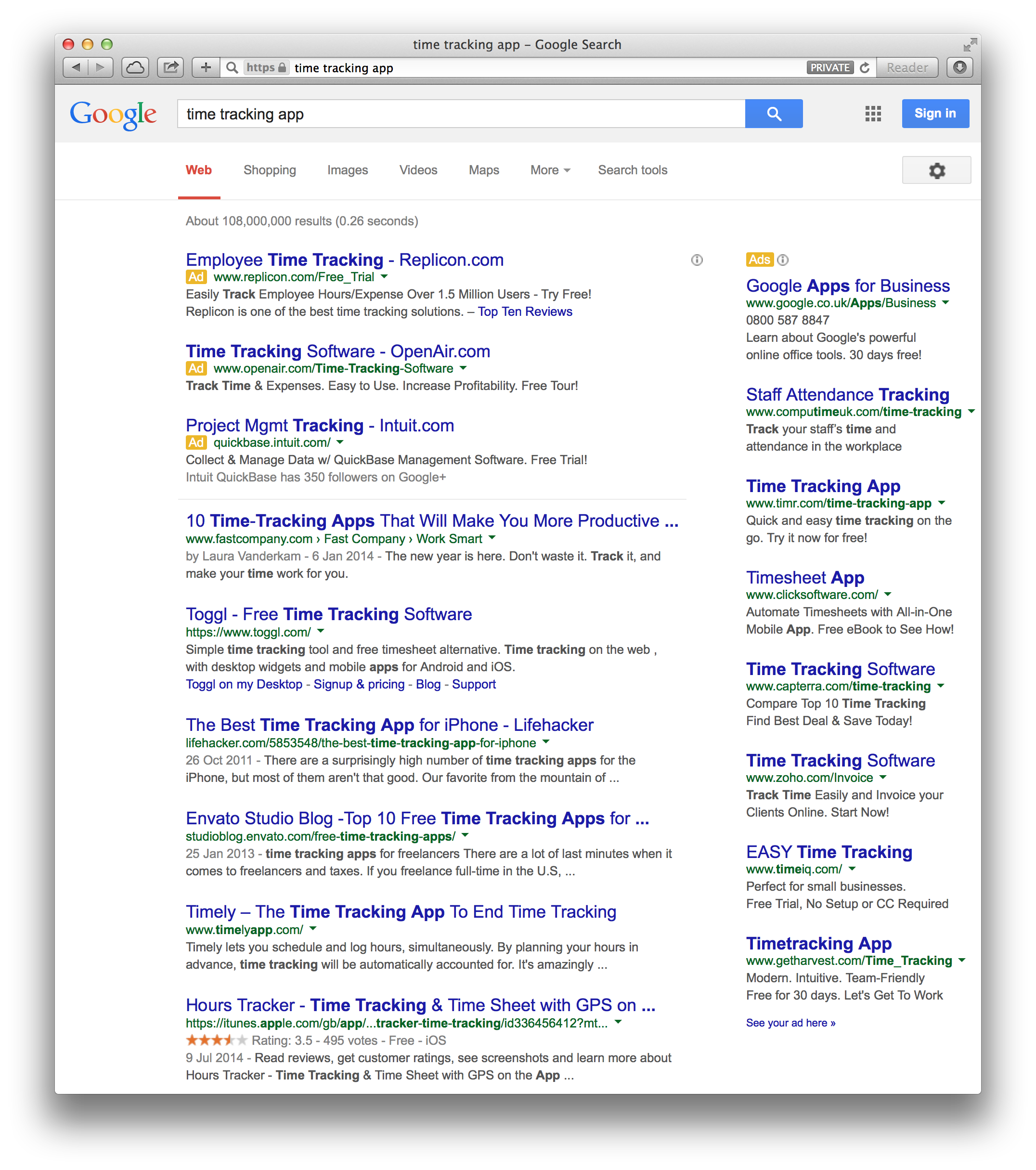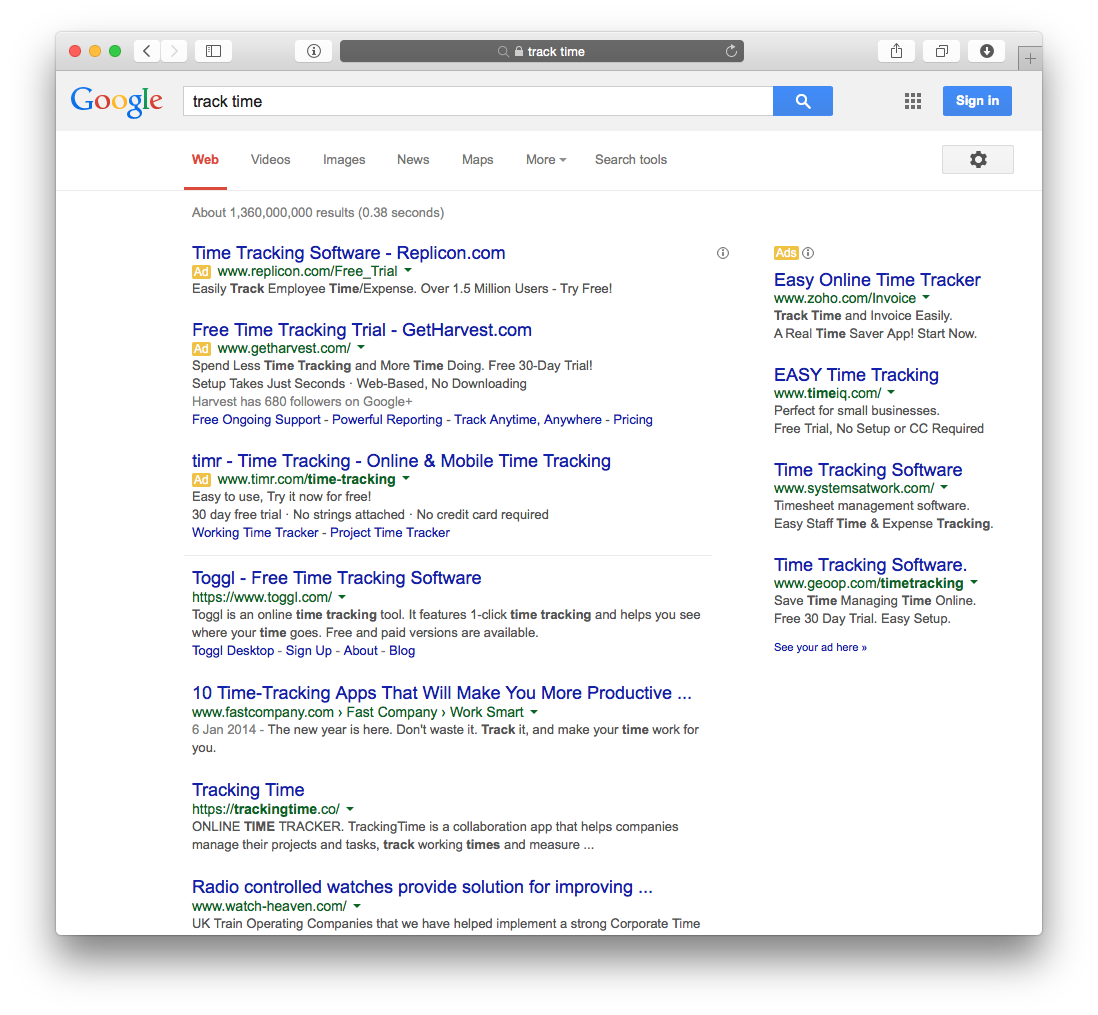-
Notifications
You must be signed in to change notification settings - Fork 22
New issue
Have a question about this project? Sign up for a free GitHub account to open an issue and contact its maintainers and the community.
By clicking “Sign up for GitHub”, you agree to our terms of service and privacy statement. We’ll occasionally send you account related emails.
Already on GitHub? Sign in to your account
Why build a time tracking app? #19
Comments
|
Yes, for a subset of the population, this problem has already been ’solved’. But we hold certain different beliefs as fundamental that affect how we approach the problem, making both our interactions with the lovely people that use the app and our solution to the various parts of the ’time problem’ different:
|
|
@iteles this list is a great starting point. 🌟 |
|
Definitely a manifesto. Quite a few of them compete for the top 5 spots though... such hard choices 😬 |
|
Ordered list. Then, once we've built our MVP and we move on to building other cool tools we can let people vote on which is the most important thing to them. |
|
Hey! I have also been thinking about the same problem for quite some time. I think the trick is to not overcomplicate and start with a single objective, which is getting accurate information. I have worked at a number of places where the organization's revenue stem directly from the billable hours of employees. I have seen countless tactics employed to try to encourage people to keep on top of things and record their time accurately. At the end of the day only a small percentage would record daily, most would record weekly, and some even monthly. This leaves you with relatively bunk data. The reality is that only a small subset personality types will be diligent in the endeavour. Most will start off with good habits, but the chaos of daily life quickly erodes them. A good goal would be to enable people to start a timer and forget about it, and then solve from there. Rather than build an entire platform maybe focus on creating a simple UI that is built around a well thought through object based schema. From there you can sync that object to greater systems or other devices where the user may want to run the same UI (ie. phone, desktop, tablet...). If the assumption is made that people will be diligent in updating a system at a regular interval then that will be the primary point of failure. I really think that is why any time tracking solution ultimately fails, regardless of how well it is made. |
|
Our focus has shifted to "personal effectiveness", which certainly includes tracking the time on tasks, but we are not building a "time tracker". |
|
To clarify: our objective was not to build just a time-tracking app, estimating and tracking time is a component of personal effectiveness. We just realised that in order to help people track how they spend their time, they need to have their notes and "todos" input first. Thanks for closing the issue @iteles 👍 |

A google search for time tracking app

yields "about" _108 Million results_
Widening the search to just Track Time yields _1.36 Billion results_:

Fast Company lists a few of "best" time tracking apps:
http://www.fastcompany.com/3024249/10-time-tracking-apps-that-will-make-you-more-productive-in-2014
If the "problem" of time/activity tracking has been "solved" by so many others,
_WHY_ should we "_re-invent the wheel_" ...?
The text was updated successfully, but these errors were encountered: